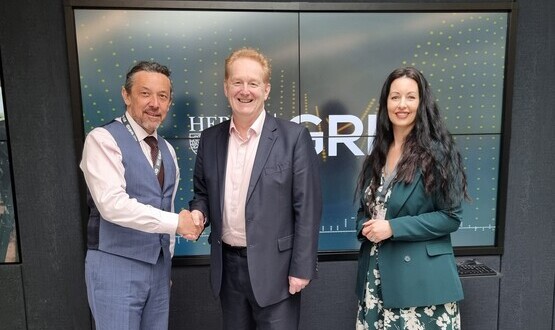The Quality Management and Analysis System (QMAS)
- 5 August 2004

Dr Trefor Roscoe
The quality and outcomes framework (QoF) is designed to reward practices for the quality of care offered to their patients and will be an important part of General Practice income for the next few years. Practices used the guidelines in the new contract blue book to estimate how much of this work they would be able to do by the end of the year. This target was used for the aspiration payment, one third of the potential amount being paid during this year in monthly instalments.
The payment method in the future involves a programme called the Quality Management and Analysis System (QMAS). This is a national data collection and analysis tool which will provide practices with a way of assessing how they are doing compared to their PCO and national averages. At the end of the year, once agreement has been reached, it will also provide a basis for payment of the balancing sum owed for this year’s work, and subsequent payments related to the QoF.
Clinical achievement is assessed within a number of disease areas and is based on the number of patients on that disease register who have had the relevant interventions. These, along with a series of non clinical quality indicators, determine how many of the 1050 points available have been achieved and thus how much the practice will be paid. Data entered during the year is collected by software written by the system suppliers and compared with the complicated requirements of the new contract. The numbers of patients with particular Read codes or combinations of Read codes over a specific period are used to produce a set of figures.
QMAS collects these figures sent to it from individual GP systems. The GP system suppliers have designed and integrated data communication which will send the information required overnight at the end of each month. Note that the GP system sends anonymised information, QMAS does not interrogate GP computers so cannot breach confidentiality. All of the data will be collected on a central server and amalgamated to provide a huge range of statistics on clinical activity within practices and PCOs. Each PCO will have a coordinator who will be responsible for issuing to practices passwords and logins to QMAS so they can see their own data. Individual PCOs will be able to see details of the practices in their area and averages of other PCOs throughout the country.
Data for Scotland Wales and Northern Ireland will be separately and amalgamated to take account of differential disease prevalences in these principalities. The Government, in the form of the NHS Bank, will be able to see how much money is likely to be needed as the year progresses and will release that money directly to practices when the year ends and the agreed level of activity is signed off by the PCOs and the practices.
All each practice will have to do is identify an individual who will be responsible for entering information and checking it. They will receive a username and password to allow them to log into the national system. Whilst the majority of the information will be automatically sent from their system to the central server, some of the information particularly in the administrative areas of the contract like records has to be entered manually. This is done using an extremely simple Internet based interface which practices will get training on. Once data is entered it can be modified but it is stored so that it only requires entry once in most cases.
As the data builds up practices will be able to modify their activity recorded on the central server. Although most data is sent automatically there is the option to send all of the data when it is convenient for the practice. At the end of the financial year the practice will have the opportunity to look at what information is held before signing it off as being complete. If there are special circumstances the PCO will be able to alter the information held on the central server to take these into account. Only after the PCO and the practice are completely happy will payment be triggered from the information held. This will occur by the end of April next year.
This information will be used to calculate the prevalence of diseases so that correction factors for high and low prevalence areas can be made. It will also support the aspiration payments for the following year. At the moment we are getting one third of our aspiration money but from next year it will become 60%. Assuming that most practices manage to hit the target they had aspired to, this means that they will get double the monthly income they are getting now from QoF payments.
When the new contract was negotiated, the complexities of the system of data collection and analysis could not have been imagined by the negotiating team. By the end of August all practices will have access to this software and will be able to see how they are doing. On each page of the statistics there is the opportunity to display the amount of money that will be paid as a result of completed activity.
Having seen the software and the training package I am completely happy that the system will be secure enough and is robust enough to provide automatic trouble free payment for the vast majority of practices with the minimum of extra work in data entry. The safeguards built in will allow reasonable challenge by practices that are unsure and even manual data entry if their computer systems are unable to communicate with a central server. Overall this system is likely to become one of the more successful and useful bits of software used in British General Practice. Let’s hope that the money to pay for the work done is available from the NHS Bank!




